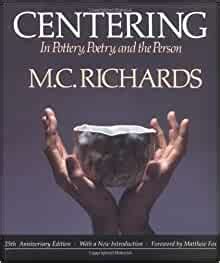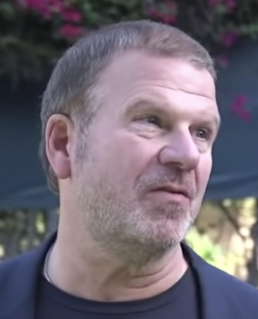A Quote by Mary Caroline Richards
It is part of our pedagogy to teach the operations of thinking, feeling, and willing so that they may be made conscious. For if we do not know the difference between an emotion and a thought, we will know very little . . . We need to understand the components (of emotions) at work . . . in order to free their hold.
Related Quotes
We don't always know the details of our future. We do not know what lies ahead. We live in a time of uncertainty. We are surrounded by challenges on all sides. Occasionally discouragement may sneak in to our day; frustration may invite itself into our thinking; doubt might enter about the value of our work. In these dark moments Satan whispers in our ears that we will never be able to succeed, that the price isn't work the effort, and that our small part will never make a difference. He, the father of all lies, will try to prevent us from seeing the end from the beginning.
The world will teach our children if we do not, and children are capable of learning all the world will teach them at a very young age. What we want them to know five years from now needs to be part of our conversation with them today. Teach them in every circumstance; let every dilemma, every consequence, every trial that they may face provide an opportunity to teach them how to hold on to gospel truths.
Creators understand that their emotions are not necessarily a sign of the circumstances. They understand that in desperate circumstances they may experience joy, and in jubilant circumstances they may feel regret. They know that any emotion will change. But because emotions are not the centerpiece of their lives, they do not pander to them. They create what they create, not in reaction to their emotions but independent of them. On days filled with the depths of despair, they can create. On days filled with the heights of joy, they can create.
Why is one a slave to thought ? Why has thought become so important in all our lives -thought being ideas, being the response to the accumulated memories in the brain cells? Perhaps many of you have not even asked such a question before, or if you have you may have said, "it's of very little importance- what is important is emotion." But I don't see how you can separate the two. If thought does not give continuity to feeling, feeling dies very quickly. So why in our daily lives, in our grinding, boring, frightened lives, has thought taken on such inordinate importance?
I agree with you that it is important to examine our presuppositions, throughly and once for all, in order to establish something solid. For I hold that it is only when we can prove all that we bring forward that we perfectly understand the thing under consideration. I know that the common herd takes little pleasure in these researches, but I know also that the common herd take little pains thoroughly to understand things.
Death is a part of all our lives. Whether we like it or not, it is bound to happen. Instead of avoiding thinking about it, it is better to understand its meaning. We all have the same body, the same human flesh, and therefore we will all die. There is a big difference, of course, between natural death and accidental death, but basically death will come sooner or later. If from the beginning your attitude is 'Yes, death is part of our lives,' then it may be easier to face.
With the rise of new technologies, media, and other cultural apparatuses as powerful forms of public pedagogy, students need to understand and address how these pedagogical cultural apparatuses work to diffuse learning from any vestige of critical thought. This is a form of public pedagogy that needs to be addressed both for how it deforms and for how it can create important new spaces for emancipatory forms of pedagogy.
They know that people need witches; they need the unofficial people who understand the difference between right and wrong, and when right is wrong and when wrong is right. The world needs the people who work around the edges. They need the people who can deal with the little bumps and inconveniences. And little problems. After all, we are almost all human. Almost all of the time.
In fiction you can make up everything to create the feeling. You can manufacture a story with whatever tools you want. With nonfiction you have to rely on what actually happened to describe what you're feeling. That's hard. You have to know what will feed into the emotion you're trying to convey. And that's hard because you don't necessarily know what causes your emotions.
As much as you need to know your operations, if you don't understand the finance side and how to do the business, you're never going to be successful. So you might be the best operator or visionary, but if you don't understand the finance side... I'm successful because I know the finance side, but I also know operations; it's not an accident.
Awareness is not the same as thought. It lies beyond thinking, although it makes no use of thinking, honoring it's value and it's power. Awareness is more like a vessel which can hold and contain our thinking, helping us to see and know our thought as thought rather than getting caught up in them as reality.
We know for a fact the Russians tried to change the outcome of our election, attacking the very fundamental of democracy. We know they did that. We need to know how, we need to know why, and most of all we need to know what to do to prevent this kind of activity, which they continue to carry on in free nations around the world.
Mothers know the difference between a broth and a consommé. And the difference between damask and chintz. And the difference between vinyl and Naugahyde. And the difference between a house and a home. And the difference between a romantic and a stalker. And the difference between a rock and a hard place.







































